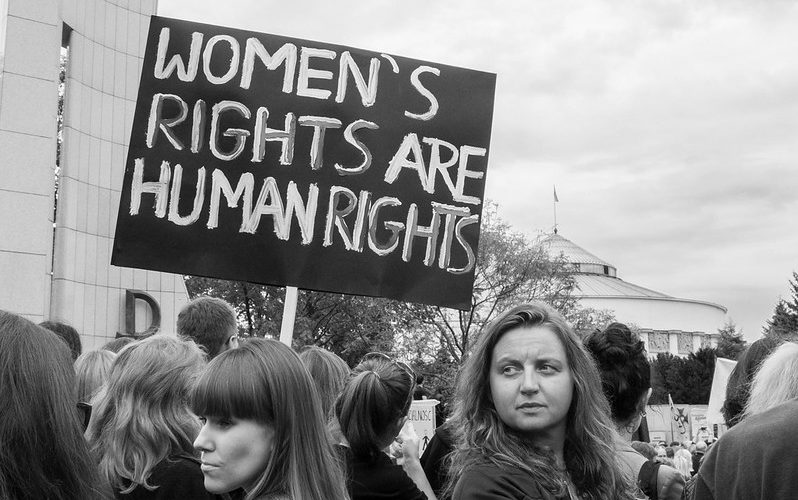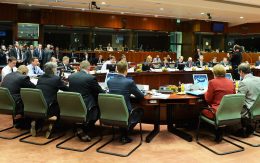On the 22nd October 2020, the Polish constitutional court ruled that the act of aborting a foetus with serious birth defects is unconstitutional (Wilczek, 2020). This decision echoed the events from 2016, where the government attempted to impose a complete ban on abortions all together (BBC, 2016) and unsurprisingly protests broke out all over the country with women and men demanding their freedom of choice, liberty and rights to their bodies. With time, the strikes expanded and gained international recognition for addressing the abortion ban itself and protecting women’s rights in a right-wing, catholic and conservative country. This initial understanding of the protests opened up room for high volumes of criticism and aggression not only from catholic and pro-life organisations, but also from national security forces, who condemned the irresponsibility of social gatherings at the times of a pandemic (TVN Warszawa, 2020). Today, however, the situation has changed and the meaning of the protests must be revisited and reviewed, showing them for what they have become: an act to challenge the bigger issue of a growing societal repression.
The changing status of the movement has obviously been caused by a variety of factors, most important being their expansion, development of micro-initiatives and the increasing understanding that the decision of the constitutional tribunal, which is filled with judges illegitimately appointed by the ruling party, is only a single step in a grand plan to gain autocratic rule over the Polish society (Kolanko, 2019). There is, however, a recent, seemingly unrelated, event which became a so-called ‘tipping point’ for the strikes, causing them to focus on fighting for safeguarding the democracy and civil rights of the society as a whole. On the 16th of November Poland, together with Hungary, threatened to veto the EU Financial plan for years 2021-2027, on a basis that they disagree with the decision that sharing the budget would be associated with each countries compliance with the rule of law (Pankowska, 2020). By opposing the condition that money will only be given to countries which obey democratic standards, the authorities openly admitted to their autocratic tendencies towards not just women, but also the entire Polish community. And thus, the response of the ‘Women’s Strike’ has been immediate and included, among many a Social Media campaign to mobilize the EU Commission to help safeguard the rights of all Polish citizens as the citizens of the EU.
Even though the movement continues to fight for the initial issue, which is the abortion ban, its current activities have now diversified into many different directions and it is relevant to recognise this especially in the instance that even if, in the upcoming future, the Constitutional Tribunal decides not to pass the abortion ban, the movement in itself should continue to receive national and international acknowledgement as a bottom-up set of actions, which aim to protect the rights of the Polish society as a whole. ‘Women’s Strike’ is a long-term quest to oppose oppression and allow voices to be heard.
Sources
BBC News. 2016. Poland’s Tussle Over Abortion Ban. [online] Available at: https://www.bbc.com/news/world-europe-37449903 [Accessed 28 November 2020].
kk/b, 2020. Bez Mundurów, Ale Z Pałkami Teleskopowymi. Kto Interweniował W Tłumie?. [online] TVN Warszawa. Available at: https://tvn24.pl/tvnwarszawa/najnowsze/strajk-kobiet-w-warszawie-zamaskowani-mezczyzni-z-palkami-i-gazem-lzawiacym-na-placu-powstancow-warszawy-4754651?source=rss [Accessed 28 November 2020].
Kolanko, M., 2019. Pis Obsadza Trybunal Konstytucyjny. [online] Rp.pl. Available at: https://www.rp.pl/Polityka/311049906-PiS-obsadza-Trybunal-Konstytucyjny.html [Accessed 28 November 2020].
Pankowska, M., 2020. Rząd Pis Wstępnie Wetuje Budżet UE. Wyjaśniamy, Co Będzie, Jeśli Nie Wycofa Się Z Tej Decyzji. [online] oko.press. Available at: https://oko.press/polska-i-wegry-wetuja-unijny-budzet/ [Accessed 28 November 2020].
Wilczek, M., 2020. Constitutional Court Ends Almost All Legal Abortion In Poland. [online] Notes From Poland. Available at: https://notesfrompoland.com/2020/10/22/constitutional-court-ruling-ends-almost-all-legal-abortion-in-poland/ [Accessed 28 November 2020].








Be First to Comment